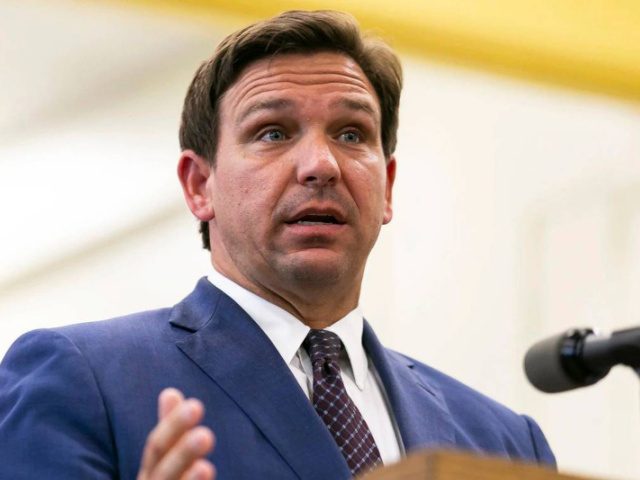Florida Gov. Ron DeSantis (R) on Thursday announced a program to help U.S. veterans to become teachers in the Sunshine State, explaining that it is fitting to have those “who took an oath and put his or her life on the line to preserve, protect, and defend our flag and the freedom it represents” to teach the next generation.
“We begin the new school year. Florida’s leading the way by bringing some of the best, the brightest, and the bravest among us into our classrooms through a new program that helps military veterans become teachers,” DeSantis announced.
“If you served in the military for at least four years, were honorably discharged, have taken 60 college credits and pass a subject area exam, we want you to be able to teach Florida students,” the conservative governor said, explaining that veterans have a “wealth of knowledge and experience” they can bring to the classroom.
“With this innovative approach, they will be able to do so for five years with a temporary certification as they work towards their degree,” he said, explaining that the requirements to be a teacher “have been too rigid with union bosses insisting that all educators get certain credentials that often have little impact on teaching performance.” DeSantis added:
Every morning, our students recite the Pledge of Allegiance while looking at the star spangled banner, and it’s fitting that the teacher in the classroom is somebody who took an oath and put his or her life on the line to preserve, protect and defend our flag and the freedom it represents — from devil dogs, to salty dogs and doughboys to fly boys. We respect our veterans and know that they have a lot to offer.
WATCH:
In Florida, we believe veterans have a wealth of knowledge and experience they can bring to the classroom, so we created a new program to help veterans become teachers.
We stand by our veterans and want them in our classrooms. pic.twitter.com/PlDIb3lz8w
— Ron DeSantis (@GovRonDeSantis) August 11, 2022
The latest program follows Florida Republicans and the DeSantis administration combatting the infiltration of “woke” in classrooms, weeding out Critical Race Theory, and barring inappropriate discussions on gender identity and sexual orientation in young childrens’ classrooms.

COMMENTS
Please let us know if you're having issues with commenting.